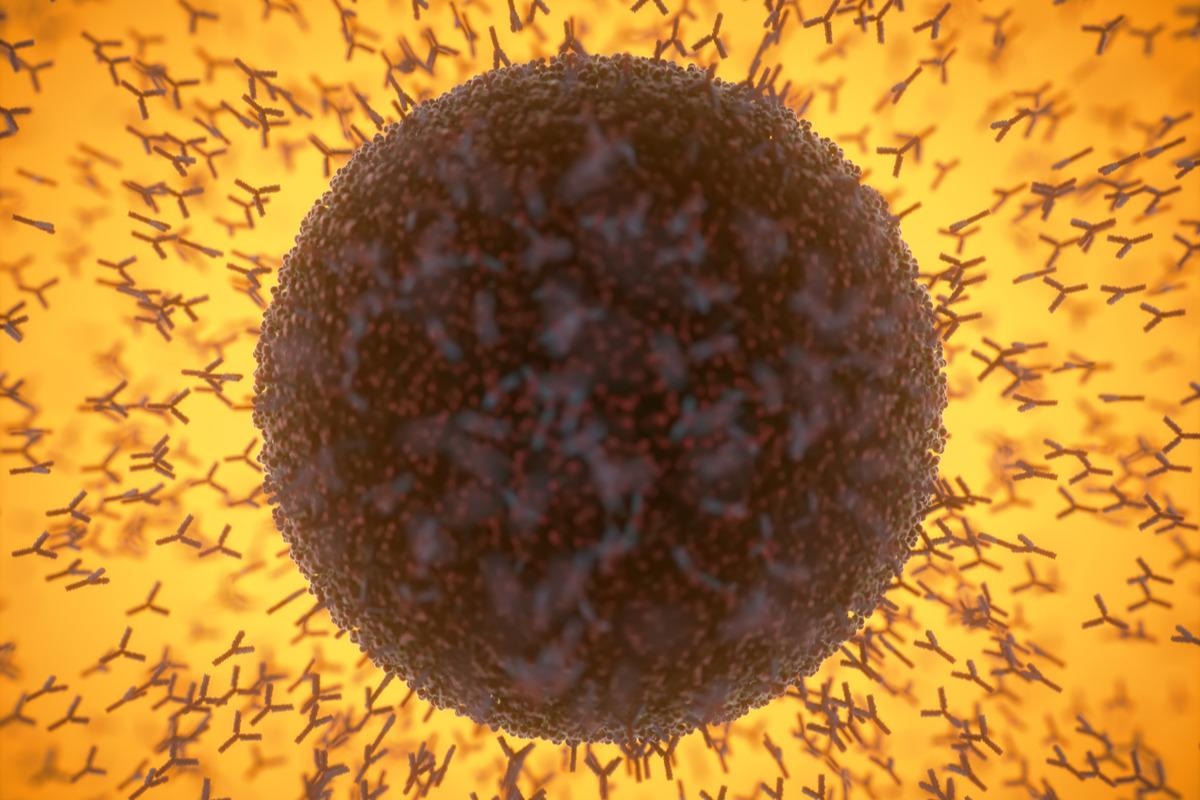In a recent study posted to the bioRxiv* preprint server, researchers discovered human monoclonal antibodies (mAbs), which were specific and potent against the severe acute respiratory syndrome coronavirus 2 (SARS-CoV-2) Omicron variant.
This was via rapid messenger ribonucleic acid (mRNA) vaccination of humanized mice.

Background
The SARS-CoV-2 B.1.1.529 (Omicron) variant quickly gained dominance worldwide with its high levels of immune escape and transmissibility. Omicron harbors over 15 mutations in its receptor-binding domain (RBD) relative to the SARS-CoV-2 Wuhan-1 strain.
The existing coronavirus disease 2019 (COVID-19) vaccines are centered on the SARS-COV-2 ancestral strain (Wuhan-1).
Hence, most current SARS-CoV-2 vaccines and mAbs have major reductions in their effectiveness against Omicron due to the numerous mutations in them.
Of note, when existing vaccinations and therapeutic antibodies fail, it's critical to create next-generation neutralizing mAbs that preserve their efficacy and restrict SARS-CoV-2 viral transmission.
About the study
In the current study, the scientists designed an extremely efficient animal immunization strategy called Rapid mRNA Immunization Of Humanized Mice (RAMIHM) for the development of neutralizing mAbs. The basic idea behind this method was to use high doses of antigen-specific lipid nanoparticle (LNP)-mRNA to immunize immunoglobulin (Ig) humanized mice several times within two weeks to isolate highly efficient neutralizing mAbs against the target antigen.
Further, the team coupled RAMIHM with Omicron-mRNA vaccination in humanized mice and generated three specific and potent clones against the Omicron variant. The clonal repertoires were mapped using customized single-cell B cell receptor (BCR) sequencing (scBCRseq).
Full-length SARS-CoV-2 Omicron spike (S) sequence employed in mRNA immunization was obtained from two North American Omicron-infected individuals identified on November 23, 2021. The mice were humanized by incorporating human IgK and IgG transgene knock-ins. The mAbs’ binding to Omicron RBD was identified using enzyme-linked immunosorbent assays (ELISA).
Results and discussions
The results showed that RAMIHM led to the derivation of powerful antigen-specific neutralizing mAbs within three weeks. Thus, RAMIHM allowed a quick response towards emerging variants or coronavirus (CoV) species like SARS-CoV and SARS-CoV-2 Delta variants. RAMIHM, unlike other techniques, did not respond to human samples and was completely controllable in the lab.
RAMIHM was quicker than normal immunization and developed entirely human mAbs without the requirement for humanization from standard animal immunization, compared to typical antibody production procedures. In the Omicron-RAMIHM humanized mouse, the scBCRseq data traced clonal repertoires and demonstrated enhanced IgG clonotypes in the plasma B cell, peripheral blood, and memory B cell populations.
RAMIHM found three specific and potent anti-Omicron neutralizing mAbs (MB.08, MB.02, and PC.03) from Ig humanized mice in this investigation. MB.08 had the highest neutralizing and binding capacity against pseudotyped Omicron RBD with a half-maximal inhibitory concentration (IC50) of 44ng/mL. The three clones were more effective than most currently approved clinical mAbs that target SARS-CoV-2 Omicron RBD. Interestingly, the MB.08, MB.02, and PC.03 mAbs did not exhibit any neutralization activity against the SARS-CoV-2 Delta variant, indicating they were selective towards Omicron.
According to the epitope binning results, MB.08 potentially binds to locations in Omicron S RBD that have overlapping epitopes with MB.02 and PC.03. However, when compared to individual clones, an antibody cocktail comprising MB.02 and MB.08 had higher SARS-CoV-2 Omicron neutralizing power with an IC50 of 30 ng/mL. The three leading clones demonstrated competitive angiotensin-converting enzyme 2 (ACE2) binding against the SARS-CoV-2 Omicron RBD.
Briefly, the MB.08, MB.02, and PC.03 neutralizing mAbs demonstrated a high affinity for Omicron RBD and robust potency in the pseudovirus neutralization experiment. Thus, proving that they were at least twice more potent than current clinically authorized or approved SARS-CoV-2 mAbs, with cocktail combinations enhancing neutralization potency even further.
Conclusions
The study findings indicated that quick mRNA immunization induced robust anti-Omicron antibodies and anti-CoV activity in humanized mice. RAMIHM-scBCRseq revealed top-ranked clones from memory B cell, peripheral blood, and plasma B cell populations with 93.3% Omicron-specificity. Clone screening showed three very effective neutralizing antibodies (MB.08, MB.02, and PC.03) against Omicron. These antibodies exhibited low IC50 values in neutralization and modest nanomolar affinity for Omicron RBD. These features made them more effective than most clinical RBD-targeting mAbs presently approved.
Overall, the novel animal immunization modality, RAMIHM, developed in the study can potentially act as a flexible platform for antibody development against several therapeutic targets or emerging pathogens. Moreover, the currently discovered fully human mAbs and their cocktail combinations with Omicron-specific action were appropriate for further IND-enabling or translational investigations.
*Important notice
bioRxiv publishes preliminary scientific reports that are not peer-reviewed and, therefore, should not be regarded as conclusive, guide clinical practice/health-related behavior, or treated as established information.
- Ping Ren, Lei Peng, Zhenhao Fang, Kazushi Suzuki, Paul A Renauer, Qianqian Lin, Meizhu Bai, Luojia Yang, Tongqing Li, Paul Clark, Daryl Klein, Sidi Chen. (2022). Potent and specific human monoclonal antibodies against SARS-CoV-2 Omicron variant by rapid mRNA immunization of humanized mice. bioRxiv. doi: https://doi.org/10.1101/2022.03.17.484817 https://www.biorxiv.org/content/10.1101/2022.03.17.484817v1.full.pdf+html
Posted in: Medical Research News | Medical Condition News | Disease/Infection News
Tags: ACE2, Angiotensin, Angiotensin-Converting Enzyme 2, Antibodies, Antibody, Antigen, B Cell, Blood, Cell, Coronavirus, Coronavirus Disease COVID-19, covid-19, Efficacy, Enzyme, Immunization, Immunoglobulin, Nanoparticle, Omicron, Pseudovirus, Receptor, Respiratory, Ribonucleic Acid, SARS, SARS-CoV-2, Severe Acute Respiratory, Severe Acute Respiratory Syndrome, Syndrome, Transgene

Written by
Shanet Susan Alex
Shanet Susan Alex, a medical writer, based in Kerala, India, is a Doctor of Pharmacy graduate from Kerala University of Health Sciences. Her academic background is in clinical pharmacy and research, and she is passionate about medical writing. Shanet has published papers in the International Journal of Medical Science and Current Research (IJMSCR), the International Journal of Pharmacy (IJP), and the International Journal of Medical Science and Applied Research (IJMSAR). Apart from work, she enjoys listening to music and watching movies.
Source: Read Full Article